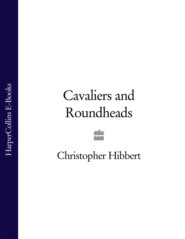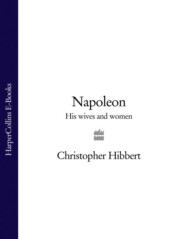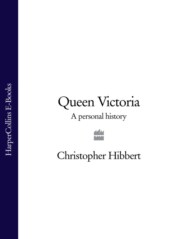По всем вопросам обращайтесь на: info@litportal.ru
(©) 2003-2025.
✖
Wellington: A Personal History
Настройки чтения
Размер шрифта
Высота строк
Поля
‘She has grown ugly by Jove!’
HE HAD first set eyes on the Hon. Catherine Dorothea Sarah Pakenham, daughter of the second Baron Longford, years before in Ireland where her father, a post-captain in the Royal Navy, had, for a few months before he had come into the family title, been Member for County Longford. Arthur Wesley had often called at the Longfords’ house in Rutland Square in Dublin and had made his feelings for Kitty known. She was a small, slim, vivacious and generous girl, indiscreet in her gossipy talk, much given to condemning the failings of others and to making dogmatic statements on matters which her knowledge of them did not justify. She read a great deal, sermons and books on religious matters as well as popular novels. An occasionally haughty manner concealed an inner uncertainty; but she was a well-liked young figure in Dublin society.
Her parents had not at that time taken kindly to Arthur Wesley’s interest in their daughter. A younger son in a large family, his prospects had not then seemed bright and his reputation, like his eldest brother’s, was far from unblemished. This was the attitude also of Kitty’s brother, Thomas, who became the third Baron Longford upon their father’s death at the age of forty-nine in 1792.
So all thoughts of marriage had to be abandoned; but Arthur Wesley assured Kitty that, should those prospects become more certain, and her brother become more, kindly disposed towards him, his own mind would ‘remain the same’, a promise that he afterwards felt to be binding upon an honourable man. The years passed. He seemed almost to have forgotten her; certainly he never once wrote to her from India; none of the shoes he bought were destined for her feet, nor jewels for her throat, nor shawls for her shoulders. But she evidently had been thinking of him as she later admitted one day to Queen Charlotte at court. ‘I am happy to see you at my court, so bright an example of constancy,’ the Queen said to her, according to Kitty’s own account given to her friend, Maria Edgeworth. ‘If anybody in this world deserves to be happy, you do. But did you really never write one letter to Sir Arthur Wellesley during his long absence?’
‘No, never, madam.’
‘And did you never think of him?’
“Yes, madam, very often.’
Yet there had been a time, when, hearing nothing from him, so Kitty told her best friend, the Hon. Olivia Sparrow, the wife of a rich, elderly soldier, General Bernard Sparrow, she had begun to suppose ‘the business over’. Another officer, Galbraith Lowry Cole, second son of the Earl of Enniskillen and three years younger than Arthur Wellesley, had fallen in love with her and had asked her to marry him. She had hesitantly accepted him. But then she was given to understand by her friend, Mrs Sparrow, who was in correspondence with him in India, that Arthur Wellesley was still attached to her. He had written to Mrs Sparrow to say that notwithstanding his good fortune and ‘the perpetual activity’ of his life in India the disappointment he had met with eight years before, and ‘the object of it and the circumstances’ were still as fresh in his mind ‘as if they happened only yesterday’. When you see your friend,’ he had added, ‘do me the favour to remember me to her in the kindest manner.’
When told of this letter, Kitty replied, ‘Olivia, you know my heart … and can imagine what gratitude I feel, (indeed much more than can be expressed) for his kind remembrance … You know I can send no message; a kind word from me he might think binding to him and make him think himself obliged to renew a pursuit, which he might not then wish or my family (or at least some of them) approve … Do you not think he seems to think the business over?’
Although still unsure about Arthur Wellesley, after much worry and consideration and to the annoyance of his family, she had broken off her engagement to Lowry Cole, greatly to his sorrow. ‘I had expected that before this Lowry would have married,’ one of his brothers wrote to another member of their family in October 1802. At present I see not the smallest chance of it … Since that love affair with Kitty Pakenham, Lowry seems like a burnt child to fear the fire and not to have any wish to hazard his happiness by paying attention to anyone else.’* (#litres_trial_promo)
The distressing contretemps had undermined Kitty’s health; she had grown thin and worn and had lost much of the prettiness and most of the bouncy sprightliness of her younger days. In October 1803 she had gone to Cheltenham to try to recoup her strength. Lowry Cole was there at the same time and his brother wrote, ‘Kitty is in Cheltenham. I am beginning to think she wishes to bring on the subject again with Lowry, but he fights shy. She will deserve it, as she treated him cruelly.’
Only too well aware that she had much changed, Kitty was extremely nervous when she heard that, in a letter to Olivia Sparrow dated August 1804, Arthur Wellesley had declared that his ‘opinion and sentiments respecting the person in question’ were the same as they had ever been; and she was even more apprehensive when she learned that he had arrived in London and had authorized Olivia ‘to renew the proposition he had made some years ago’.
Kitty did not know what to say in reply. She would be ‘most truly wretched’, she replied to Mrs Sparrow, if she had cause to believe that Sir Arthur was repeating his offer in fulfilment of an undertaking he had made so long ago. The letter from him which she had been shown did not contain ‘one word expressive of a wish that the proposition should be accepted’. There was no indication that ‘Yes would gratify or that No would disappoint’. Besides, she added, ‘I am very much changed and you know it within these last three years, so much that I doubt whether it would now be in my power to contribute [to] the comfort or happiness of any body who has not been in the habit of loving me for years like my Brother or you or my Mother.’
Someone else warned Sir Arthur that he would find Kitty Pakenham, now aged thirty-four, ‘much altered’; but he maintained that ‘he did not care. It was her mind he cared for’, he said, ‘and that would not alter’.
So, having obtained permission from her brother to do so, he wrote to her formally proposing marriage. She was reluctant still. She told him that she did not think it fair to engage him before he had seen her, until he was ‘quite positively certain that [she was] indeed the very woman [he] would chuse for a companion a friend for life’. ‘In so many years I may be much more changed than I am myself conscious of,’ she concluded. ‘If when we have met you can tell me … that you do not repent having written the letter I am now answering I shall be most happy.’
Undeterred but quite without evident enthusiasm, Sir Arthur departed for Ireland in April 1806 at the age of thirty-seven to marry a woman with whom he was not in the least in love. He had been in no hurry to leave England where he had been busy with private as well as public affairs, paying visits to Cheltenham, where he stayed at the Plough, to Stowe to see the Marquess of Buckingham and Cirencester to call upon Lord Bathurst. Taking temporary lodgings at 18 Conduit Street, he had gone out to buy music at Robert Birchall’s shop in New Bond Street – romantic songs, light operas, Mozart – and dinner and breakfast services at Flight and Barr’s china shop in Coventry Street.
He was described by Kitty’s friend, Maria Edgeworth, who saw him now for the first time, as being ‘quite bald’; but this was only because his unpowdered hair was cut so very short. Extremely plain herself, Miss Edgeworth also wrote of him as being ‘handsome, very brown … and a hooked nose’.
Sir Arthur could find nothing remotely handsome about his anxious bride who, in Miss Edgeworth’s words, ‘coughs sadly and looks but ill’. Mrs Calvert thought that he ‘must have found her sadly altered, for she was a very pretty little girl, with a round face and fine complexion. She is now very thin and withered … She looks in a consumption.’
A few years before, the Prince of Wales, on meeting his bride for the first time, had murmured to Lord Malmesbury who had brought her over to England from Brunswick, ‘Harris, pray bring me a glass of brandy’, before retiring to a far corner of the room. Similarly disappointed, Sir Arthur was said to have whispered to his brother, now the husband of the eldest daughter of Earl Cadogan, the Rev. Gerald Wellesley, who was to conduct the marriage service in the drawing room of the Longfords’ house in Rutland Square, ‘She has grown ugly by Jove.’
Having already overstayed his leave, Sir Arthur remained in Dublin for less than a week before sailing back to London after the briefest of honeymoons from which he was seen returning on the box of the carriage while his bride remained inside. She followed him to England later in the care of his brother, Gerald; and, having stayed with Mrs Sparrow for a time, while her husband still occupied his bachelor rooms, she set up house with him at n Harley Street, a smart residential street first rated in 1753 and not yet favoured by doctors.
Here she settled down uneasily to begin her married life, her husband’s solicitors having drawn up a settlement by which he would contribute £20,000 and she £4,000 with a further £2,000 from her mother. Sir Arthur’s hopes that she would prove as exact in money matters as he was himself were not to be realized.
11 Ireland and Denmark (#ulink_6f5418f5-fa14-5080-a4bb-11212b875974)
1806 – 7 (#ulink_2eb33981-087c-51bf-9f4d-49db15aa9542)
‘Show me an Irishman and I’ll show you a man whose anxious wish it is to see his country independent of Great Britain.’
GENERAL WELLESLEY returned to his duties in Hastings, but his eyes were now firmly set on that more imposing stage on the Continent which Lord Longford had rather doubted he would ever ascend. His brother, the Marquess, however, now returned from India, was in much need of his family’s support in the House of Commons where he was under sustained attack from the Member for Newtown who was intent upon blackening Wellesley’s name and record as Governor-General in India. This disputatious Member was James Paull, the dapper little son of a Scottish tailor who had done very well for himself as a merchant in India where he had fallen foul of the Governor-General. The Marquess’s brother William had been Member for Queen’s County since 1801; but William needed support in his defence of the reputation of the family which, if lost, would damage the prospects of them all. So Sir Arthur offered himself as candidate for Parliament at Rye and was duly elected, after paying for much wine and many dinners for the electors and their wives and families, and contributing £50 to the ‘Poor in lieu of Garlands etc., etc.’
In Parliament he staunchly defended his brother against the accusations of Mr Paull, and when Paull widened his charges to include condemnation of the behaviour in India of the ‘indiscreet Knight of the Bath’, he firmly defended himself, asserting roundly that ‘what he did in India was in obedience to the orders he had received; and for the manner of that obedience, and its immediate result, he was ready to answer whether to the House or to any other tribunal in the realm’.
Throughout the session he was regular in his attendance at the House and could often be seen walking with brisk step across St James’s Park. He spoke upon Indian affairs when called upon to do so and occasionally upon military matters, once warmly supporting a proposed increase in the pay of junior officers; and, when he returned to his brigade at Hastings during the summer recess, he still concerned himself with Parliamentary business and his brother’s affairs, helping to bring in two new supporters of Lord Wellesley at the St Ives election at a cost of £3,500, considerably more than he had found it necessary to lay out himself upon the electors at Rye.
At the same time he strongly advised his brother to seek friends among the newspaper editors, since it appeared ‘that the Newspapers [had] made such good progress in guiding what was called publick opinion in this Country that no Man who [looked] to publick station [would] attain his objects, without a connection with & assistance from some of the Editors’.* (#litres_trial_promo)
His heart was not in politics, though. He was, after all, a soldier; and so long as other soldiers were gaining honours in fighting Napoleon and his allies, he could not comfortably live out his days on the south coast, however fully he contrived to occupy them.
Month by month Napoleon was extending his hold upon Europe. Joseph Bonaparte had become King of Naples in March 1806, Louis Bonaparte King of Holland in June. Their brother defeated Prussia at Jena and Saxony at Auerstadt in October and went on to occupy Berlin and Warsaw.
British victories that year were comparatively trivial. Buenos Aires surrendered to a small British force at the end of June but was retaken by the Spanish in August. In Calabria, Sir John Stuart attacked a French army at S. Pietro di Maida on 4 July and defeated it, but had no cavalry with which to follow up a victory which was celebrated beyond its deserts in London where Maida Hill and Maida Vale were named in honour of it and General Sir John Stuart, Count of Maida, received the freedom of the City.
In Hastings, General Wellesley wrote to Lord Grenville to offer his services in the hope that the Secretary for War would press his claims upon the Duke of York. He did not care in what situation he served, he wrote in another letter; he would be ‘very sorry to stay at home when others went abroad’ just because he could not be appointed to the chief command.
But no suitable command of any sort was given him. To be sure he was offered the opportunity of going to attack the Spanish in Mexico which was, according to a highly complicated plan formed by the Cabinet, to be seized by two armies falling upon it simultaneously, one from Jamaica on the coast of the Gulf of Mexico, the other – sailing by way of Singapore, the Philippines (where Manila was to be captured on the way) and Australia – on the Pacific seaboard somewhere in the region of Manzanillo.
But when he came to study this scheme, Sir Arthur was convinced of its wild impracticality as a military operation, apart from the difficulty of maintaining a government in Mexico should the operation be successful, ‘particularly against the attempts which might be made upon it by the United States’.
So, for the moment, politics seemed destined to claim him. The death of Charles James Fox in September had unsettled ‘the Ministry of All the Talents’; and when Fox’s successor as Foreign Secretary, Lord Howick, later Earl Grey, introduced the Roman Catholic Army and Navy Service Bill, which proposed opening both services to Roman Catholics and Dissenters alike, the King, convinced that to agree to such a measure would be a betrayal of his coronation oath, announced he would never consent to it and demanded an assurance that Ministers would never press upon him any concessions to Roman Catholics in the future. The Cabinet declined to give any such assurance; so in March 1807 the King summoned the Duke of Portland, old, ill and sleepy as he was, to form a new government.
The Duke appointed George Canning Foreign Secretary, Spencer Perceval as Chancellor of the Exchequer and brought back Lord Castlereagh as Secretary for War and the Colonies. Sir Arthur Wellesley was invited to accept the post of Chief Secretary for Ireland, at a salary of £6,566 a year, the Duke of Richmond being Lord-Lieutenant, two other Dukes, Rutland and Beaufort, having declined that unwelcome duty.
Sir Arthur, who had re-entered Parliament as Member for the Cornish borough of Mitchell in January, decided to accept the appointment in Dublin, provided that he might give it up should there be an opportunity of employment in the Army. The Duke of Portland agreed to this condition, and Sir Arthur took up his new post in March 1807.
Sir Arthur and Lady Wellesley, with their baby son, Arthur Richard, who had been born at 11 Harley Street on 3 February, together with the child’s nursemaid and their other servants, moved into the Chief Secretary’s house in Phoenix Park from which the Chief Secretary rode across each morning, accompanied by the Lord-Lieutenant’s daughters, to his office in the Castle. It was ten years since he had last lived in Dublin and much had changed. In 1798 a rebellion led by the Society of United Irishmen, who were dedicated to the establishment of an independent Irish republic and sought military help from France, had persuaded Pitt that union between Great Britain and Ireland was essential; and union had accordingly been authorized by legislation of the English and Irish Parliaments in August 1800.
The union, as Sir Arthur immediately recognized in Dublin, was far from universally popular. The Irish were ‘disaffected to the British Government’, he reported to London. They did ‘not feel the benefits of their situation’. ‘Show me an Irishman,’ he wrote on a later occasion, ‘and I’ll show you a man whose anxious wish it is to see his country independent of Great Britain … Independence is what the Irish really aim at.’ To achieve that independence from Britain they were looking eagerly for a French invasion; and in the event of such an invasion ‘the operations which the British army would have to carry on would be of the nature of those in an enemy’s country’. He was ‘positively convinced that no political measure’ that the Government could adopt would ‘alter the temper of the people’ of Ireland, and he was ultimately forced to the conclusion that the Irish should be ‘kept down by main force’, for they had too much power already and would ‘only use more to obtain more and at length separation’. Now and later, as a member of the Anglo-Irish gentry, he clung steadfastly to the belief – perhaps more firmly held than any other in politics apart from his conviction that the worst evil that could befall a nation was civil strife – that the political supremacy of Great Britain over Ireland should be maintained.
In the meantime he settled down to his duties in the Castle with his usual conscientiousness, dealing with mounting piles of correspondence, writing memoranda for the Government on such matters as Ireland’s coastal defences, granting, or more often declining, the numerous, frequently importunate requests for the Government’s patronage which were made to him, regretting the fact that in Ireland ‘almost every man of mark had his price’, refusing permission for the Yeomanry to celebrate their part in the suppression of the 1798 rising on the grounds that it would be an unnecessary provocation to the dissidents, organizing the elections of 1807, which followed upon the dissolution of Parliament, buying some seats, exchanging favours for others, observing the drunkenness, violence and chicanery when seats were contested and a ‘man who registered a vote without a cracked pate was regarded as a kind of natural phenomenon’. In Wexford, he wrote in a matter-of-fact manner in one of his dispatches to London, one candidate killed another in a duel, but as that was ‘reckoned fair in Ireland, it created no sensation’.
He himself was now Member for Newport in the Isle of Wight, having given up his Cornish seat; and in June he sailed for England, returning to the house in Harley Street. leaving his wife in Dublin to join him later.
The marriage was proving to be no more successful than it had seemed likely to be at the start. He spent much of his time away from home, allowing it to be supposed that he preferred to accept invitations to stay in country houses without his wife, spending as much time in the hunting field as his duties allowed, leaving her to entertain members of her family and other guests on her own. Soon after the birth of their son, Arthur, in rather uncertain health and thirty-five years old, Kitty became pregnant again and gave birth to her second son and last child on 16 January 1808. Thereafter her relationship with her husband became increasingly strained, he finding her dull and incapable, she being fond and admiring but so nervous and shy in his company that she appeared almost frightened of him and thus irritated him all the more. It was obvious to everyone who knew them that she exasperated him on occasions, particularly when she fussed about his health or tried to hide her ignorance by dogmatic assertions. When their baby, Arthur, had contracted measles at the age of five months, his mother had cause to be anxious; but the father, who had been hunting at Hatfield within three days of his birth and had told her that his return depended upon the likelihood of frost, dismissed her concern. He had ‘no apprehension for the Meazles, being convinced that it is a mild disorder’. All that was needed was ‘common care during the recovery’.
His letters to her were addressed to ‘My dearest Kitty’ and customarily ended in the same affectionate way, but their contents often read as though they were addressed to a steward and a not very competent steward at that:
I enclose a letter from a Bricklayer. I thought you had paid him. Let me know whether you have or not … Let the Gardener [who had been dismissed] be taken back … I am much concerned that you should have thought of concealing from me any want of money … I don’t understand how this want occurred or why it was concealed … I acknowledge that the conclusion I draw from your conduct upon the occasion is that you must be Mad, or you must consider me to be a Brute, & most particularly fond & avaricious of money. Once for all you require no permission to talk to me upon any subject you please; all that I request is that a [fuss] may not be made about trifles … & that you may not go into tears because I don’t think them deserving of an uncommon degree of attention … It is to be hoped that at some time or other I shall be better understood.’
Fifteen years later, while walking in a garden after supper with his dear friend Harriet Arbuthnot, he confessed that he had been ‘a damned fool’ to have married ‘such a person’.
He assured me that she did not understand him [Mrs Arbuthnot recorded in her journal], that she could not enter with him into the consideration of all the important concerns which are continually occupying his mind, and that he found he might as well talk to a child … He told me … that his tastes were domestic, that nothing w
make him so happy as to have a home where he could find comfort; but that, so far from that, she made his house so dull that nobody w
go to it … & that it drove him to seek abroad that comfort & happiness that was denied to him at home … At his home he had no creature to speak to, for that discussing political or important subjects with the Duchess was like talking Hebrew to her.
Busy as he was with these political affairs which he could not discuss with his wife, Sir Arthur reminded Lord Castlereagh more than once of his determination not to give up the military profession, of his fear that were he to let an opportunity to serve slip by for the sake of clinging to ‘a large civil office’, he might lose ‘the confidence and esteem of the officers and soldiers of the army’.
His chance came towards the end of July 1807 when an expedition was being planned to force the Danes to give up possession of their fleet to the British before it was seized by the French. General Wellesley was offered the command of a division in this expedition, and eagerly accepted it. He sailed almost immediately in the fire-ship Prometheus for Copenhagen.









